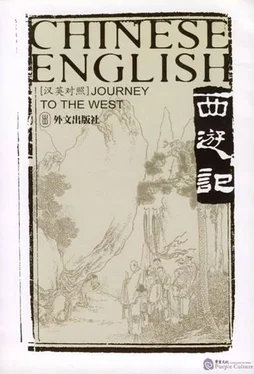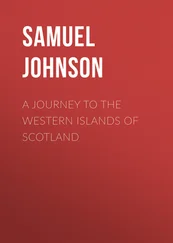While bamboo and pine show still greener in the cold.
When the four of them had traveled a lot further they approached a walled and moated city. Reining in the horse the Tang Priest spoke to his disciples: “Wukong, what sort of place is that with all those tall and magnificent buildings?” Monkey looked and saw that the city was like this:
A wall of bronze, shaped like a dragon,
And in the form of a crouching tiger,
From all directions fine carriages approach
And many a wheel has smoothed the roads to it.
Amazing beasts are carved on the balustrades of marble;
Statues of great men stand on pedestals of gold.
This is indeed a blessed capital,
A true metropolis.
Its vast domains are firmly held;
The dynasty has flourished for a thousand years.
To the monarch's goodness the barbarians submit;
Here is the holy gathering from islands and from sea.
Before the palace steps is purity;
Peace reigns on the highways.
The bars are full of noise and song;
Bliss is found in the houses of pleasure.
Outside the palace grow trees of eternal spring
Where phoenixes sing their greetings to the dawn.
“Master,” said Monkey, “that city is a royal capital.”
“The world is full of prefectural cities and county seats,” laughed Pig. “What makes you so sure that this is a royal capital?”
“You don't seem to realize that royal capitals are different from prefectural cities and county towns,” Monkey replied. “Just look. It's got over ten gates and the wall must measure twenty or thirty miles around. Those towers are so high they disappear into the clouds. How could anything except a royal capital be as grand as that?”
“You're right, brother,” said Friar Sand, “it is a royal city. But what's it called?”
“How can I tell?” Monkey replied. “There aren't any signs or banners. We'll have to go into it and ask.”
The venerable elder whipped on his horse and was soon at a gate, where he dismounted to cross the bridge and go in to look. They saw the six main streets and the three markets, where commerce was flourishing, as well as the imposing clothes of the noble and great. Then as they were walking along they saw a dozen or so Buddhist monks in chains and cangues, heavy boards locked round their necks, begging from door to door. They were dressed in rags.
“The fox mourns for the death of the hare,” sighed Sanzang. “All things are sorry for their own kind. Go and ask them, Wukong, why they are being punished like that.”
Doing as he had been told, Monkey asked, “What monastery are you from, monks? Why are you in cangues and chains?”
“My lord,” said the monks, all falling to their knees, “we are from the Golden Light Monastery and we have been wronged.”
“Where is the Golden Light Monastery?” Monkey asked.
“Just round the corner,” they replied.
Monkey led them to the Tang Priest and asked them, “How have you been wronged? Tell me.”
“We don't know where you're from, but you look a little familiar to us, my lords,” the monks replied. “We don't dare talk here. Please come to our poor monastery where we can tell you our woes.”
“Very well,” said the venerable elder, “we shall go to their monastery and ask them all the details.” They went with them to the monastery gate, over which was a board on which was written in letters of gold
NATION-PROTECTING GOLDEN LIGHT MONASTERY
FOUNDED BY ROYAL COMMAND
When master and disciples went inside to look around this is what they saw:
Cold were the lamps in the ancient hall;
Wind blew the leaves along deserted cloisters.
A thousand-foot pagoda touched the clouds;
Pine trees grew to nourish the nature.
Fallen blooms carpeted the unvisited grounds;
Spiders span cobwebs all over the eaves.
The drum-stand was empty,
The bell hung in vain,
And the frescoes could barely be seen through the dust.
Still was the pulpit where no priest could be seen,
Silent the dhyana hall except for the birds.
The desolation made one long to sigh;
Its dreariness caused great pain.
Although an incense burner stood before the Buddha
All was cold ash, withered flowers and desolation.
All this made Sanzang miserable, and he could not help his tears flowing. The monks in their cangues and chains pushed open the doors of the main Buddha-hall and invited him to step inside and worship the Buddha. Sanzang entered, offered the incense of his heart and said the recitation three times. Then he turned round again to see six or seven young monks locked to the pillars outside the abbot's lodgings. It was more than he could bear.
When he entered the abbot's lodgings and all the monks came to kowtow to him they asked, “You reverend gentlemen look rather different. Are you from Great Tang in the East?”
“You must have second sight,” Monkey said with a laugh. “We are indeed, but how could you tell?”
“We don't have second sight, my lords,” the monks replied. “It's just that because we're so distressed at the injustice we've suffered and because there's nowhere else we can turn, we have been calling on heaven and earth for days on end. Some heavenly deity must have been moved by us because last night we all had the same dream. We were told that a holy monk was coming from Great Tang in the East who would save our lives and right our wrongs. We knew who you were today because you looked rather unusual.”
This pleased Sanzang greatly. “What country is this, and what injustice have you suffered?” he asked.
“My lord,” said the monks on their knees, “this country is called Jisai, and it's one of the biggest in the West. In the old days the foreign states all around used to send tribute: Yuetuo in the South, Gaochang to the North, Western Liang in the East, and Benbo to the West. Every year they used to offer fine jade, bright pearls, beautiful women and magnificent horses. We never had to resort to arms or send expeditions against them: they naturally acknowledged us as their suzerain.”
“If they did that your king must understand the Way and your civil and military officials be wise and good,” Sanzang said.
“My lord,” the monks replied to Sanzang's question, “our country's civil officials are not wise, our generals are not good, and our monarch does not understand the Way. Auspicious clouds used to gather round the pagoda of our monastery and mists of good omen rose high above it. The glow above it at night could once be seen from thousands of miles away; the coloured vapors were admired by the countries all around. That was why this was a divinely-appointed capital to which all the foreigners sent tribute. But three years ago at midnight on the first day of the first month of autumn it rained blood. The next morning everyone was terrified and miserable. All the ministers submitted a memorial to the throne: they didn't understand why heaven was so angry with us. Taoists were asked to perform purifications and Buddhist monks to recite sutras as an offering to heaven and earth. Goodness only knows why, but our golden pagoda has been contaminated, and for the last two years no foreign countries have sent tribute. Our king wanted to send armies to punish them, but the officials said that the reason why foreign countries weren't sending tribute was that the auspicious clouds and mists of good omen had disappeared, and this was because we monks had stolen the treasure from the pagoda in our monastery. The stupid king did not investigate, and those corrupt officials had all us monks arrested. We have been beaten and tortured in every possible way. There used to be three generations of us monks in this monastery, but the two older generations both died off because they couldn't take the beating and torture. Now we've been arrested and made to wear these cangues and chains. Your Honour, we could never be so wicked as to steal the treasure from the pagoda. We implore you to take pity on your fellows and in your great mercy and compassion make wide use of your dharma powers and save our lives.”
Читать дальше









